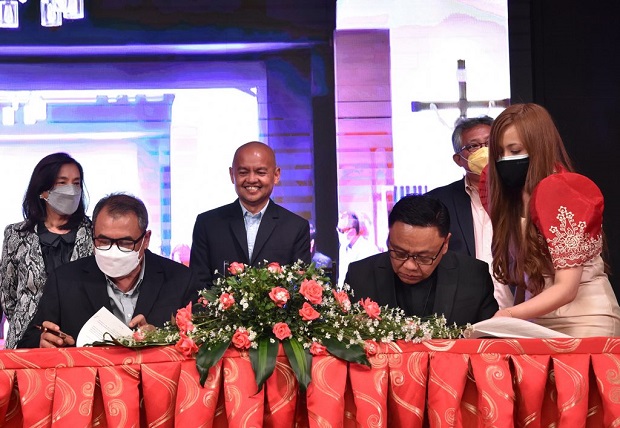Signaling the shift towards full automation, the Supreme Court (SC) has announced that it will launch on July 15 an online portal for the digital filing of petitions to take the 2020-2021 Bar examinations.

Using the Bar Personalized Login Unified System or Bar PLUS, applicants will be able to submit their personal details, access the necessary forms for their application, upload petition requirements, and pay for their application digitally.
“No longer will a Bar applicant have to go to Manila, (to) line up at the Office of the Bar Confidant,” SC associate justice Marvic Leonen said.
Applicants will also be able to choose their preferred exam venue, subject to the approval of the Office of the Bar Confidant. The 2020-2021 Bar Examinations will be held on November 7, 14, 21, and 28, 2021.
Meanwhile, SC has signed a contract with Saint Louis University (SLU) in Baguio City, officially making the Baguio-based learning institution one of the testing centers for the Bar examinations.
In his presentation entitled “Looking Ahead: Meaningful Bar Reforms,” Leonen disclosed that the SC is “ready to conduct localized Bar Examinations, with students bringing their own devices into their own classrooms,” with each classroom positioned following the guidelines of the Covid-19 Inter-Agency Task Force.
Leonen also revealed that to date, “there are already 16 local testing centers that have agreed to the Memorandum of Agreement based on the template approved by the SC:”
- Ateneo de Manila University;
- Manila Adventist College;
- SLU Baguio;
- Saint Louis College – La Union;
- Saint Mary’s University;
- Cagayan State University;
- De La Salle Lipa;
- University of Nueva Caceres;
- University of St. La Salle – Bacolod;
- Central Philippine University;
- University of Cebu – Banilad;
- Mindanao State University – Iligan;
- Mindanao State University – General Santos City;
- Ateneo de Davao University;
- Xavier University – Cagayan de Oro;
- Ateneo de Zamboanga University
Leonen added that the SC might have a total of 25 testing sites throughout the country, as the High Court is still in the process of negotiating with several large schools to accommodate more bar examinees.
In his closing remarks, Gesmundo said that the reforms for Bar examinations will continue beyond this year, as he will ask the members of the SC “to look into the revision of Rule 138 (of the Rules of Court), particularly on the Bar exam coverage.”
He noted that the provisions of the said rule have not changed since they were promulgated in1964.
“Law courses have become varied; a lot of changes have happened in the field of law. And yet, we have not looked into these specific provisions of the Rules of Court,” he lamented.
“I would like the Court to continue looking at the course offerings of law schools along with the Revised Model Curriculum prepared by the the Legal Education Board,” he said, adding that the courses offered by law schools must be synchronized with the coverage of the Bar exams.
Gesmundo served as chairperson of the Organizing Committee for the SC’s 2019 Legal Education Summit, a two-day conference organized by the court to assess and improve the quality of legal education in the country.
The committee was tasked “to consult the stakeholders in different regions of the country to determine the problems encountered in legal education, and to formulate the proposed solutions to address them.”




